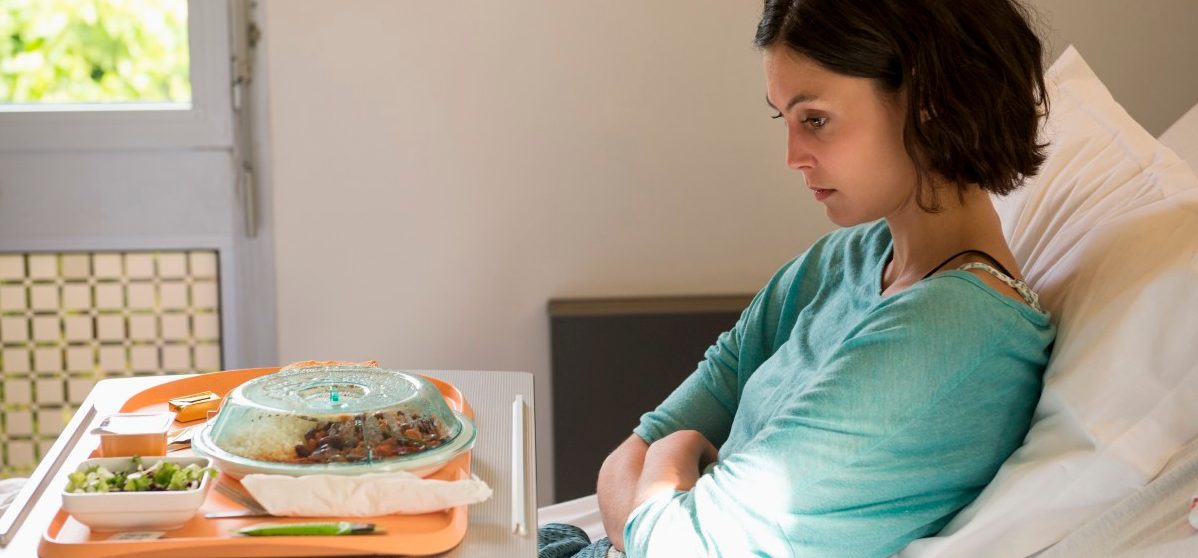Can You Starve Cancer?

Some researchers believe your diet may play an important role in the spread of cancer; nutrient-rich foods may help fight cancer or even prevent it.
In the early l960s, Judah Folkman, MD, was a young Harvard-educated U.S. Navy doctor working on research when he noted cancerous tumors in rabbits required blood vessels to keep growing. Curious, he began pursuing the idea that angiogenesis — the process by which new blood vessels are formed so oxygen and nutrients can be delivered to tissues in the body — was important for the growth of cancer.
Folkman went on to join the Harvard Medical School faculty, and his interest in a link between angiogenesis and cancer progression intensified. In l971, he published what was then a controversial theory in The New England Journal of Medicine: Targeting and shutting down angiogenesis, he posited, could potentially stop cancer in its tracks.
The skepticism faded as Folkman’s research achievements lead to the foundation of angiogenesis therapies to treat certain cancers. Surgeon and scientist Folkman eventually became known as the “Father of Angiogenesis.”
YOU MIGHT ALSO LIKE: Do Certain Foods Fight Cancer?
Stopping angiogenesis to treat cancer
Angiogenesis plays a critical role in the growth of solid tumor malignancies because the cancers need a blood supply to progress beyond a couple of millimeters in size. Cancerous tumors emit chemical signals — including vascular endothelial growth factor (VEGF), a protein, along with other proteins — that stimulate angiogenesis to provide the blood supply the tumors need to grow.
New blood vessels triggered by angiogenesis carry nutrients and oxygen to cancerous growths, which causes the tumors to grow, invade tissues close by, and even move through the body, the National Cancer Institute explains.
Thanks to the groundbreaking work of Folkman, researchers have created cancer treatments that can help slow or halt the spread of many malignancies. Before he passed away in 2008, an estimated 1.2 million people had received antiangiogenic treatments for cancer, Harvard points out.
So far, the U.S. Food and Drug Administration has approved more than a dozen angiogenesis inhibitor drugs to treat cancer — most were developed specifically to target the VEGF protein, its receptor, or other specific molecules known to be involved with promoting angiogenesis in tumors. Several hundred more angiogenesis inhibitors are being studied.
Can what you eat help create natural angiogenesis inhibitors?
William Li, MD, trained in Folkman’s lab and has been actively engaged in angiogenesis research and clinical development for 30 years. Li, who is president and medical director of the Angiogenesis Foundation, points out that microscopic tumors are formed in everyone, throughout their lives. Some grow and turn malignant, others never develop.
So, why does cancer develop in one person and not in another?
Li believes diet may play an important role because nutrients in certain foods act in the body as natural cancer angiogenesis inhibitors. The list of these foods, according to the Angiogenesis Foundation, includes:
- Green tea
- Strawberries
- Oranges
- Pineapple
- Red grapes
- Red wine
- Bok choy
- Soybeans
- Licorice
- Turmeric
- Artichokes
- Tuna
- Parsley
- Olive oil
- Dark chocolate
- Pomegranate
More research needs to be done on the ways diet can prevent cancer — including how certain foods may stop cancers from growing and spreading. Li points out that many studies in his book, “Eat to Beat Disease: The New Science of How the Body Can Heal Itself,” already provide evidence for the power of natural cancer growth blockers.
Prostate cancer is an example: “The Harvard Health Professionals Follow-Up Study examined 46,719 men for lycopene intake and found that consuming two to three cups of tomato sauce per week is associated with a 30 percent decreased risk of prostate cancer, which is consistent with the antiangiogenic effect of lycopene on cancer,” Li wrote. “In the men who did develop prostate cancer, those who ate more tomato sauce were found to have less angiogenic and less aggressive cancers.”
Updated:
February 24, 2022
Reviewed By:
Christopher Nystuen, MD, MBA and Janet O'Dell, RN